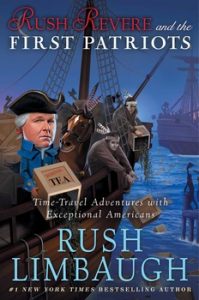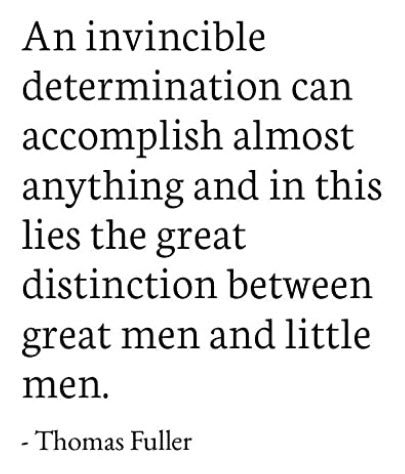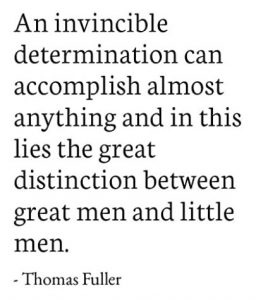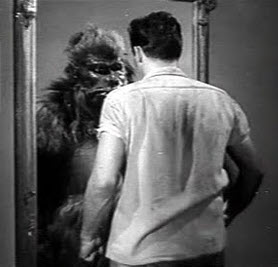Charity
- Filter by
- Categories
- Tags
- Authors
- Show all
- All
- Abortion
- Abuse
- Addiction
- Adoration
- Amazon.com
- American Exceptionalism
- Angels
- Anger
- Anxiety & Panic
- Apologize (How To)
- Assisted Suicide
- Atheism
- Avarice/Greed
- Baptism
- Beliefs
- Birth Control
- Blessed Trinity
- Blessed Virgin Mary
- Brown Scapular
- Business
- Catholic Boys
- Catholic Church
- Catholic Girls
- Catholic Men
- Catholic Parenting
- Catholic Schools
- Catholic Women
- Celebrities
- Charity
- Chastity
- Christmas
- Comfort Zone
- Communion of Saints
- Confession
- Conflict
- Courage
- Covetousness
- Creativity
- Criticism
- Cross (Acceptance of)
- Dangerous People
- Dating
- Death
- Death Penalty
- Depression
- Devout Catholics
- Difficult People
- Divine Mercy
- Divorce
- Easter
- Economy
- Envy
- Evil
- Examination of Conscience
- Faith
- Family
- Fatherhood
- Fatima
- Fear
- Financial Problems
- Forgiveness
- Fr. John Hardon
- Freedom
- Friendship
- Fulton J. Sheen
- Gay Marriage
- Gender Identity
- Getting Things Done
- Gluttony
- Goals
- Government
- Grandparents
- Gratitude
- Happiness
- Hate
- Health and Weight Loss
- Health Problems
- Heaven
- Heroes
- Holy Communion
- Hope
- Humility
- Immaculate Heart of Mary
- Independence Day
- Keys To Greatness
- Kingdom of God
- Lapsed Catholics
- Leadership
- Legal System
- Lent
- Life Is Worth Recording
- Love
- Lust
- Marriage
- Mass
- Meditations
- Mental Illness
- Mentoring
- Miracles
- Modesty
- Money
- Mortification
- Mother Teresa
- Motherhood
- Movies, Television & Broadway
- New Year's Resolutions
- Nuclear Power
- Organ Donation
- Patience
- Personal Crisis
- Personal Growth
- Personal Responsibility
- Politics
- Pope
- Popular Culture
- Pornography
- Prayer
- Pride
- Priesthood
- Purgatory
- Purity
- Redemption
- Reparation
- Resurrection
- Rosary
- Sacraments
- Sacred Heart of Jesus
- Sacrifice
- Saints
- Salvation
- School System
- Self Importance
- Seven Capital Sins
- Seven Sorrows of Mary
- Sex
- Sin
- Sloth
- Smartphones
- Sports
- St. Joseph
- Suffering
- Suicide
- Taking Action
- Technology
- Teenagers
- Thanksgiving
- Time Management
- Valentine's Day
- Virtues
- Walt Disney
- Work
- Works of Mercy
- All
- "These Things I Wish"
- 1 Percenter
- 100th Anniversary of Our Lady of Fatima
- 28% increase in suicide rates since 1999 - Why?
- 33 Days to Morning Glory
- 4th of July
- 50 Year Anniversary of Humane Vitae
- 7 Capital Sins
- 80th Anniversary Think And Grow Rich
- A Catholic Guide To Showing Appreciation
- A Catholic Thanksgiving
- A Catholic's Take on The Greatest Showman
- A Child's Subconscious Mind
- A Christian Remedy For Anxiety
- A Critical Event Accelerates the Canonization of Fulton J. Sheen
- A Modest Dress for Melania Trump
- A plan to end suicides
- A Pope who did his job as the Vicar of Christ
- A Prayerful Response to the Coronavirus
- A remedy for suicide
- A Solution to the Shortage of Priests
- A spiritual remedy for suicide
- A Top Skill of Master Salesmen
- A Way to Practice Continual Mental Prayer
- A&E
- Aaron Schock Investigation
- Aaron Schock Resignation
- Aaron Schock Violations of Law
- Abortifacients
- Abortion
- Abortion and Amnesty
- Absolute Truths
- Abstaining From Meat On Friday
- Abuse
- Abusive Parents
- Abusive Teachers
- Academic Freedom
- Academy Awards
- Accomplishment
- Accumulating Wealth
- Achievement
- Achieving Goals
- ACLU
- Adam and Eve
- Adam Lanza
- Addiction
- Addiction Behavior - Significant Personality Factors
- Addictive Behavior - Cell Phones
- Addictive Behavior - Mobile Phones
- Addictive Behavior - Smartphones
- Admiration
- Adoption
- Adoption Services
- Adoration
- Adoration Chapel
- Adultery
- Advantages of Homeschooling
- Advent Meditations
- Advice from An Old Farmer
- Agent Maria Hill
- Agent of the Devil
- Agent of the Holy Spirit
- Agent Phil Coulson
- Al Franken
- Alan R. Lang
- alarm
- Alcoholism and Children
- Alek Minassian Motive for Mass Shooting
- Alex Gilady
- Ali-Frazier II
- All American City Peoria IL
- All Star Wrestling
- All-Powerful Government
- Amazon
- Amazon CEO Jeff Bezos Divorce and Affair
- Amazon.com
- Amending the Constitution
- America's Favorite Storyteller
- American Culture
- American Exceptionalism
- American Idioms
- American Religion
- American Wrestling Association World Heavyweight Champion
- Americanization of Foreigners
- Amnesty
- An American in Paris
- An Easter Message
- Anchors Aweigh
- and Love
- and Resurection of Jesus
- and sloth
- Andres Klaven - Dating and Marriage
- Andrew Klavan Truth About Dating and Marriage
- Andrew Kreisberg
- Android
- Andy Henry
- Angel Appearance to Fatima Children
- Angel Gabriel
- Angels
- Anger
- Anger and Resentment
- Angry at God
- Angry With God
- Anne of Green Gables
- Anniversary of Supreme Court Abortion Decision
- Annulments
- Annunciation
- Anthony Bourdain Suicide
- Anthony Kennedy Same-Sex Marriage
- Antidote to Loneliness
- Antonin Scalia
- Anxiety
- Apologize
- Apology
- Apostles Creed
- Apple
- Appropriate Atire in Church
- Archbishop Fulton J. Sheen
- Are Leggings Modest?
- Are you a feminist?
- Are you a woman warrior?
- Are you paranoid about God?
- Aretha Franklin’s funeral possession of pink cadillacs
- Arnold Schwarzenegger
- Art of Storytelling
- Article 5 Convention
- Ash Wednesday
- Assault Weapon
- Assisted Suicide
- Assumption
- Assumption of Mary into Heaven
- Assumption of the Blessed Virgin Mary into heaven
- Atheism
- Atheist
- Attributes of a Holy Priest
- Attributes of God
- Austrian Economics
- Automobile Accident Injuries
- avarice
- Avatar
- AWA
- Back To The Future
- Bad Breath and Halitosis
- Bad Employees
- Bad Examples
- Bad Habit of Running Late
- Bad Habits
- Bad Romance
- Bakers Union
- Balance
- Balance Life
- Ban on Bump Stocks
- Bank of America Robot Report
- Baptism
- Barbara Corcoran and Entreprenuers
- Barbie Turns 60 Years Old
- Bartering
- Basic Catholic Catechism Course
- Batman
- Battle of Lepanto
- Be Fruitful and Multiply
- Beatlemania and the Catholic Church
- Behavior
- Belief in God
- Beliefs
- Ben Affleck
- Ben Franklin - A Virtuous Life
- Ben Franklin's 13 Virtues
- Benefits of a Virtue-Based Society
- Benefits of Large Families
- Benefits of the Rosary
- Benj Pasek - The Greatest Showman
- Benjamin Franklin
- Benjamin Percy
- Bernie Madoff
- Bernie Sanders Socialism Legalized Theft
- Best Friend Forever
- Beth Fuson
- BFF
- Bill of Rights
- Bill O’Reilly
- Biological Man or Woman
- Birth Control
- Birth Control and Humane Vitae
- Birth Control and Marriage
- Birth Control and Size of Family
- Birth Control and the Catholic Church
- Bishop
- Bishop Daniel Jenky
- Bishop Jenky Fulton Sheen
- Bitcoin
- Black Widow
- Blackberry
- Blaming Others
- Blessed Mother
- Blessed Trinity
- Blessed Virgin Mary
- Block Rosary
- Blue Bayou
- Bob Guccione
- Bob Schelp
- Bodily Immortality
- Boring Christmas Newsletters
- Born To Win
- Borrowing Money
- Boston Legal
- Boxing
- Boy and Girl - Perfect Family
- Boy Scouts of America
- Brad and Angelina Divorce
- Brad and Angelina Family
- brain-dead
- Brett Kavanaugh
- Brett Kavanaugh - Guilty or Innocent
- Brett Ratner
- Bringing Fallen Away Catholics Back In The Church
- Brittany Maynard California Suicide
- Brown Scapular
- Bruce Caitlyn Jenner
- Bruce Jenner
- BSA
- Buddhism
- Building Wealth
- Bureaucrats
- Burial of Jesus
- Business Coaching
- Business Development
- Business Law
- Business Loans
- Business Success
- by Fr. Joseph M. Esper
- Cable Television
- Cafeteria Catholics
- Caitlyn Jenner
- California Assisted Suicide Law
- California Proposition 8
- California Wild Fires
- California Wildfires and the Rosary
- Camel Eye of the Needle Rich
- Can a Catholic Vote for a Pro-Abortion Candidate
- Can a Catholic Vote for Hillary
- Can You Ever Recover From PTSD?
- Can You Trust Anyone Anymore?
- Canonization of Mother Teresa
- Capitalism
- Captain America
- Captain America Elevator Fight Scene
- Captain America Movie Review
- Captain America: The First Avenger
- Captain America: The Winter Soldier
- Cardinal Dolan Bishop Sheen
- Cardinal Dolan Fulton Sheen
- Cardinal Jorge Mario Bergoglio
- Cardinal Jozef Ratzinger
- Carrie Fisher and Harrison Ford
- Carrie Fisher Obituary
- Carrying Your Cross
- Carter Oosterhouse
- Casey Anthony
- Catastrophic Injury
- Catching Fire Review
- Catechism of the Catholic Church
- Caterpillar moving headquarters from Peoria to Chicago
- Catholic
- Catholic Behavior
- Catholic Beliefs
- Catholic Beliefs About Money
- Catholic Boys
- Catholic Church
- Catholic Church and Contraception
- Catholic Church and Family Size
- Catholic Church and Suicide
- Catholic Church Meatless Friday Rule
- Catholic Diocese of Peoria Monsignor Gregory K. Ketcham
- Catholic Divorce
- Catholic Economics
- Catholic Families
- Catholic Family
- Catholic Family Life
- Catholic Formula For Staying Married
- Catholic Fountain of Youth
- Catholic Girls
- Catholic Governor Governor Andrew Cuomo and Abortion
- Catholic Halloween
- Catholic High Schools
- Catholic Home Education
- Catholic Homeschooling
- Catholic Judge
- Catholic Leadership
- Catholic Lessons From Shark Tank
- Catholic Marriage
- Catholic Marriage Advice
- Catholic Marriage Counseling
- Catholic Men
- Catholic Mothers
- Catholic Obligations
- Catholic Parenting
- Catholic Priests
- Catholic Priests and Marriage
- Catholic Relics
- Catholic Remedy for Mass Killings
- Catholic Review - The Young Messiah
- Catholic Services of Illinois
- Catholic Shark Tank
- Catholic Universities
- Catholic Vote
- Catholic Voting
- Catholic Wedding
- Catholic Women
- Catholics and Money
- Catholics and Thanksgiving
- Catholics Rabbits Pope
- Caylee Marie Anthony
- Celebrities
- Celebrity Divorce Brad and Angelina
- Celebrity Endorsements of Products
- Center for Medical Progress
- CEO Oscar Munoz Statement
- Chaim Topol
- Championship Qaulities of New England Patriots
- Changing Careers
- Changing Jobs
- Chaplet of Mercy
- Charity
- Charles Atlas
- Charles Couri Death
- Charles Couri Obituary
- Charlie Gard
- Charlie Rose
- Charlie Sheen
- Chastity
- Chernobyl
- Chicago Politics
- Chicago riots
- Children Are A Blessing
- Children Music Lessons
- China One-Child Policy
- China Two-Child Policy
- Chinese Hack - Military Records
- Chris Harper-Mercer Motive for Mass Shooting
- Chris Savino
- Christ Child
- Christian
- Christian Guide to Surviving Prison
- Christian Perspective
- Christian Sexuality
- Christian Virtues in Business
- Christians vs. Muslims
- Christine Blasey Ford's Weak Case of Sexual Abuse
- Christmas
- Christmas Preparation
- Chronic Tardiness
- Chuck Couri Death
- Chuck Couri Obituary
- Church Sues Gov. Pritzker For Not Allowing Citizens To Attend Church Services
- Cinderella
- cnn story about family in texas 12 gallons of milk
- Co-Redemptrix
- Coca Cola - The Pause That Refreshes
- Cocooning and Bunkering
- College Life
- College of Cardinals
- Comfort Zone
- Comic Book Heroes vs Real Heroes
- Comic Book Villains
- Commitment
- Committed Catholics
- Communication With God
- Communion of Saints
- Complex Problems Require Complex Solutions
- Compulsory School Age
- Conclave
- Concupiscence
- Conditions of a Contract
- Condoms
- Confession
- Confession During Lent
- Confession of Pride
- Confessions of a Grieving Christian
- Confessions of a Happy Christian
- Confrontation
- Congenital Heart Defect
- Connor Betts Motive for Mass Shooting
- Consecration
- Consecration of Marriage
- Consecration of Marriage to Jesus through Mary
- Consecration of Marriage to the Blessed Virgin Mary
- Consecration of Marriage to the Mother of God
- Consecration to Jesus Christ the Incarnate Wisdom through the Blessed Virgin Mary
- Consecration to the Blessed Mother
- Consecration to the Blessed Virgin Mary
- Consequences of Sin
- Conservative Catholics Challenge Beliefs of Pope Francis
- Continual Mental Prayer
- Continuous Present
- Contraception
- Contraception and Population Control
- Contraceptive
- Contraceptive Birth Control
- Contraceptive Mentality
- Contract Law
- Controlling Fear
- Controversy over Thoughts and Prayers
- Coping with an Angry Person
- Coping With Death
- Coping with Stress
- Coping With the Death of a Loved One
- Coronavirus and the Collapse of our Economy
- Coronavirus and the Collapse of our Healthcare System
- Coronavirus Out of Control
- Coronovirus Crisis
- Corporal works of mercy
- Could the caronavirus spread the U.S.?
- Council of Chalcedon
- Courage
- Courage & Trust
- Courage to Pray in Public
- Court System
- Courtroom Experienc
- Cover Letter
- COVID-19 and Public Manias
- Creation of Angels
- Creative Destruction
- Crime
- Crisis
- Crisis in the Catholic Church
- Cross-Examination and the Judgment Day
- Crucifixion
- Cuomo - Trump Interview
- Customer Service
- Daily Journal
- Daily Mass
- Daily Prayer
- Daily Rosary
- Dallas
- Dan Kennedy
- Dan Sullivan
- Dangers of Gender Identity
- Dangers of Premarital Sex
- Dangers of Sex Before Marriage
- Dangers of Shacking Up
- Daniel Boone
- Danny Jordaan
- Danny Masterson
- Dark Night of the Soul
- Dating
- Dating and Relationships
- Dating App Ghostwriter
- Dating Deadbeats
- Dating Nice Guys
- Dating Rules
- Dave Logan
- David Green
- David vs. Goliath
- DC Comics
- Dealing with an Accidental Death
- Dealing with Anger
- Dealing with Anxiety
- Dealing with Conflict
- Dealing with Depression
- Dealing With Fear
- Dealing with Setbacks
- Dealing With Sinful Behavior
- Dean Jackson
- Death
- Death and Salvation
- Death of Bum Phillips
- Death of Carrie Fisher
- Death of Harambe the Gorilla
- Death of Jim Maloof
- Death of Joan Rivers
- Death of Leonard Nimoy
- Death of Mary Tyler Moore
- Death of Michael Novak
- Death of Spock
- Death of Star Wars Princess
- Death of the Founder of Weight Watchers
- Death of Zig Ziglar
- Death Penalty
- Declaration of Independence
- Decline of Business in America
- Defense of Marriage Act
- Defiance and Pride
- Defiance and Sin
- Definition of Anger and Rage
- Definition of Capitalism
- Definition of God
- Definition of Marriage
- Definition of Time
- Deflation
- Defying Death
- Deportation of Illegal Immigrants
- Depression
- Despair
- Desparate Housewives
- Destructive Tendencies of Digital Technology
- Deterioration of the Distinction Between Genders
- Developing New Habits
- Devotion to Mary
- Devotion to Our Lady of the Rosary
- Devotion to the Blessed Mother
- Devotion to the Blessed Virgin Mary
- Devotion to the Mother of God
- Devout Catholics
- Did F. Lee Bailey Believe in God
- Difficult People
- Diligence
- Disciplining Boys
- Discouragement
- Disney Synergy Diagram
- Disney World
- Disneyland
- Dissolution of Marriage
- Divine Mercy
- Divine Mercy Chaplet
- Divine Mercy Devotion
- Divine Providence
- Divorce
- Do Christians Turn Away Illegal Immigrants?
- Do you have too much money to get to Heaven?
- Doctor Assisted Suicide
- Does China Control all of our Antibiotics
- Does the Catholic Church teach that you have to crank out a baby every year?
- DOMA
- Don McLean
- Don't be Afraid of Getting Rid of a Client
- Donald Trump
- Donald Trump and Hope and Change
- Donald Trump Interview
- Donald Trump Whiner
- donor network
- Dr. David Dao and United Airlines
- Dr. Maxwell Maltz
- Dr. Morris Marc Soriano
- Drawbacks of Email Communication
- dread
- Dressing up for Church
- Duck Call
- Duck Commander
- Duck Dynasty
- Due Process and Judge Brett Kavanaugh
- Dumit Ghantous Obituary
- Dumit Ghantous Obituary Peoria IL
- Dumit Ghantous Peoria IL
- Dustin Hoffman
- Dwindling Number of Catholic Priests
- Dymamic Tension
- Dynasty
- Earthquake
- Easter
- Easter Message - A Reason to Smile
- Easter Sunday
- Eastern Orthodox Church
- Easy Money
- Easy Way To Get Hired.
- Easy Weight Loss
- eBay
- Ebola Crisis
- EBT System Failure
- Economic Expansion
- Economic Freedom
- Economy
- Ed Westwick
- Edward Snowden
- Effects of the Deterioration of our Christian Culture
- Election of New Pope
- Eliminating Sinful Thoughts
- Elizabeth Fuson
- Elizabeth Fuson Obituary
- Elizabeth Taylor
- Elizabeth Warren Socialism Legalized Theft
- Ellen Kriedman
- Elliot Rodger Motive for Mass Shooting
- Elphaba
- Emarald City
- Embrace the Struggle
- Emotional Pain
- Empathetic
- Empathy
- Empathy and Leadership
- Empathy Definition
- Empathy of Jesus Christ
- Empathy vs. Sympathy
- Emperor Marcian
- Employee Theft
- Employment
- Emulation
- End-of-Life Decisions
- Energy
- Engaging in Conflict
- English idioms
- Enthusiasm
- Entrepreneur
- Entrepreneur Article - Gary Vaynerchuk
- Entrepreneurs
- Entrepreneurship
- envy
- Eternity
- Eucharist
- Everything is temporary on Earth
- Evil
- Evil Spirits
- Evils of Contraception
- Examination of Conscience
- Experience
- Eye of the Needle
- F. Lee Bailey - A Catholic Perspective
- F. Lee Bailey - The Celebrity Lawyer Dies
- F. Lee Bailey Obituary
- Facebook Blocks Catholic Pages
- Facebook's 58 Gender Options
- Facebook's Anti-Catholic Attitude
- Facebook's Anti-Catholic Behavior
- Facebook's Bogus Excuse For Purging Catholic Pages
- Failed Leadership
- Failure of ATMs
- Failure of Baby Boomers
- Failure of Men to Commit to Prayer
- Fairness
- Faith
- Faith After Losing a Child
- Faith Popcorn
- Fake News
- Fall of Lucifer
- Fall of Man
- Fallen Angels
- Family
- Family Rosary
- Father Patrick Payton
- Father's Day
- Fatherhood
- Fatima
- Fatima - 100 Year Anniversary
- Fatima - Angel's Prayer
- Fatima after 100 years
- Fatima and the U.S. Supreme Court
- Fatima Message
- Fatima Message and Adoration
- Fatima Message and Reparation
- Fear
- Fearless
- Feast of Our Lady of the Rosary
- Feast of St. Joseph - March 19
- Federal Agents Raid Caterpillar's Headquarters
- Federal Employee - Hacking of Personnel Records
- Feeling Important
- feminists and women warriors
- Fess Parker
- FFRF
- Fiat Money
- Fiction Writing and The Hero's Journey
- Fifth Sunday of Lent
- Fighting
- Fighting the Internet Invasion of Childhood
- Financial Crisis
- Financial Problems
- Finding Your Voice
- First Things First
- First-Class Relic of St. John Paul II’s Blood
- Fiscal Cliff
- Food Prices
- Food Stamp Debit Card Failure
- For Men Only - Men Who Pray
- Foregiveness
- Forgiveness
- Forgiving Others
- Formula for Eradicating Loneliness
- Formula for Forgiveness
- Foster Hibbard
- Founding Fathers
- Four Keys to Communication
- Fourth Station of the Cross
- Fourth Sunday of Lent
- Fr. Charles Curran
- Fr. John A. Hardon
- Fr. John Hardon
- Fr. Marne Breckensiek
- Fr. Michael E. Gaitley
- Fr. Patrick Peyton
- Francisco Marto
- Francisco Marto - Appearance of Angel in Fatima
- Free Love
- Free Market Capitalism
- Free Market Economy
- Free Speech
- Free Will
- Freedom
- Freedom From Religion Foundation
- Freedom of Religion
- Freedom of Speech
- Friendship
- fright
- Frodo Baggins
- From Pain and Suffering to Suicide
- From Whiner to Saint
- Fulton J. Sheen
- Fulton Sheen To Peoria Illinois
- Gabrielle Giffords
- Gain Salvation for Family Members
- Gangsta Rap
- Gangster Rap
- Garden of Paradise
- Gary Goddard
- Gary Halbert - Image Suicide
- Gary Vaynerchuk
- Gay Marriage
- Gender Change and the Tower of Babble
- Gender Disphoria and the Tower of Babel
- Gender Reassignment Surgery
- Gene Kelly
- General Examen
- General Providence
- Generosity
- Genius of Make America Great Again
- Geoffrey Rush
- George Clooney Ocean’s Eleven
- George Takei
- George Washington
- Geraldo Rivera
- Gerry Spence
- Getting compensation for pain and suffering
- Getting Things Done
- Getting To Work On Time
- Gifts for Boys
- Gilbert Rozon
- Gillette Toxic Masculinity Video
- Gipps Brewery
- Giuseppe Castellano
- Giving Glory to God
- Giving Things Up for Lent
- Glorious
- gluttony
- Goal Setting
- Goal Setting Secrets
- Goals
- God is Omnipresent
- God's Plan for You
- God's Role in an Out of Control World
- God's Will
- gods and goddesses
- Gold
- Golden Globe Awards
- Golf
- Good Friday
- Gossip
- Governor Jerry Brown Assisted Suicide
- Governor Pat McCrory HB2
- Governor Pritzker Adds ‘Exercise of Religion’ to Essential Activity
- Governor Pritzker is Forced to Add ‘Exercise of Religion’ to Essential Activity
- Grace of God
- Grace To Overcome Obstacles
- GRAMMY Awards
- Grandfathers
- Grandparents
- Gratitude
- Gratitude for Difficulties
- Greatest Love Letters of all Time
- Greed
- Gregory Ketcham Obituary
- Grow Closer to God With Increased Prayer
- Growing up in the 1960s
- Guardian Angel
- Guardian Angel Prayer
- Guidelines for Catholic Voters
- Gun Control
- Gunning for Justice
- Guppy Litchfield Obituary
- Habits
- Hacking Into Our Banking System
- Hadrian Belove
- Haiti
- Hamilton Fish
- Han Solo - It's Not My Fault!
- Happiness
- Happiness is a Choice
- Happy New Year!
- Hard Assets
- Hard Work
- Harley Iron Man 3
- Harry M. LaHood
- Harry M. LaHood II
- Harry M. LaHood Jr
- Harry Potter
- Harry Williams - Injury Trial Lawyer
- Harry Williams - Legal Victory over City of Peoria
- Harvey Weinstein
- Harvey Weinstein's Criminal Sexual Abuse
- Hate
- Hawkeye
- Healing Through Prayer
- Health
- Health Problems
- Heart Problems
- Heart Surgery
- Heart Surgery VSD
- Heaven
- Heaven Hell and Purgatory
- Heavenly Protection
- Helen "Geri"Abele - Apr 15 1947 – Mar 13 2019
- Helping Others
- Henry T. Ford
- Herioc Virtues
- Hero
- Heroes
- Hidden Faults
- High School
- Hilary Hinton Ziglar
- Hip-Hop
- Hobby Lobby
- Hole In Heart Infant
- Holiness
- Hollywood Sexual Harassment
- Holy Communion
- Holy Family
- Holy Hour
- Holy Thursday
- Holy Trinity
- Home Free - How Great Thou Art
- Homeschooling
- Homesexuality
- Homosexuality
- Homosexuals
- Hope
- Hostess Bankruptcy
- Hostess Brands
- Hostess Twinkies
- How Bad is the Coronavirus?
- How Christians Handle Anxiety
- How could Jeff Bezos be so stupid?
- How dangerous is the coronavirus?
- How manage your anger
- How Much Money Is Too Much?
- How Much Time Should A Catholic Pray Each Day?
- How to Accept God's Will
- How to Achieve Goals
- How to Avoid Business Failure
- How to Become a Saint
- How to Build Rapport
- How to Conquer a Bad Habit
- How to Control Fear
- How to control your anger
- How to Cope with Life in Prison
- How to Cope with Suffering and Sorrow
- How to Counter Evil
- How to Deal to Keep from Panicking from the COVID-19 Virus
- How to Deal With a Difficult Client
- How to Deal with a Difficult Spouse
- How to Deal With a Financial Crisis
- How to Deal With an Out of Control World
- How to Deal With Criticism
- How to Deal with Difficult People
- How to Deal with Doctors
- How to deal with fear
- How to Deal With Homeless People
- How to Deal with Memories of Abuse
- How to Deal with Pain and Suffering
- How to Deal With Stress
- How to Deal With Sudden Death\
- How to Deal with the Anxiety Associated with COVID-19
- How to Deal With the Death of a Loved One
- How to Develop a Good Habit
- How to Discipline a Catholic Child
- How to Discover Your Hidden Faults
- How to Effectively Deal with Anger
- How to Enhance Friendships
- How to Enhance Your Prayer Life
- How to Find a Job
- How to Get a Job
- How to Get Out of a Finanical Rut
- How to get the job done
- How to get things done
- How to Get Through the CLOVID-19 Pandemic
- How to Give Glory to God
- How to Handle a Difficult Client
- How to handle a humiliation
- How to Handle a Suicidal Adult
- How to Handle a Suicidal Child
- How to Handle Anger
- How to Handle Criticism
- How to Handle Stress
- How to Handle Unfair Treatment
- How to Increase Productivity
- How to Let Clients Know What You're Doing for Them
- How To Make A Genuine Apology
- How to Manage Anxiety and Depression
- How to Manage Your Own Health Care
- How to Motivate Yourself
- How to overcome fear
- How to overcome your faults
- How to overcome your pride
- How to practice humility
- How to Prevent Suicide
- How to prove pain and suffering
- How to Raise Boys to be Men
- How to Reach Out to Your Guardian Angel
- How to Reach Perfection
- How to Respond to an Angry Person
- How to Stop Suicide
- How To Stop Time
- How to Survive a Difficult Marriage
- How To Talk To Fallen Away Catholics
- How To Talk To Lapsed Catholics
- How to Treat PTSD
- How To Turn Gossip Into Kindness
- How to Waste Your Suffering
- Hugh Hefner - Lucifer's General
- Hugh Hefner and the Playboy Philosphy
- Hugh Hefner's Destructive Playboy Philosophy
- Hugh Jackman
- Hugh Jackman - The Greatest Showman
- Humanae Vitae
- Humiliation
- Humiliation of Jesus
- Humiliation of Saint Joseph
- Humiliation of the Blessed Virgin Mary
- Humility
- Humility - The Mother of All Virtures
- Humility and the Crucifixion
- Humility of the Blessed Virgin Mary
- Humility vs. Pride
- I Love Lucy
- I miss Mother Teresa
- I miss Pope John Paul II
- I Pencil
- I'm Sorry But
- iCloud
- Ignoring God at Expense of Modern Technology
- iHater
- II
- IL Senate Bill 1307
- Illegal Immigration
- Illegal Immigration and the Catholic Church
- Illicit Drugs
- Illinois Catholic Charities
- Illinois Education Association
- Illinois Federation of Teachers
- Illinois Governor Richard Quinn
- Illumination
- Illumination of a Soul
- iMac
- Immaculate Heart of Mary
- Immediate Providence
- Immitation of Christ
- Immodest Clothing
- Immunity to Criticism
- Importance of Exercise
- Importance of Forgiveness
- Importance of Hard Work
- Importance of High Expectations
- Importance of Music for Children with Down Syndrome
- Importance of Perpetual Adoration
- Importance of Prayer
- Importance of Storytelling
- Importance of Writing
- Incarnation
- Income Redistribution
- Independence Day
- Individualism
- Infidelity
- Inflation
- Infused Knowledge
- insomnia
- Instructing the Ignorant
- Integrity
- Internet
- Interstate Brands
- Interviewing for a Job
- Intrinsic Value
- Invasion of Privacy
- iPad
- iPhone
- iPhone icons
- iPod
- Iron Man
- Iron Man 2
- Iron Man 3 Mechanic
- IRS Raids Caterpillar's Headquarters
- Is Generosity Enough to Get to Heaven?
- Is Getting Drunk a Mortal Sin?
- Is is a Mortal Sin to get drunk?
- Is It A Sin To Become Drunk
- Is it okay to question God?
- Is justice being served with Judge Brett Kavanaugh
- Is the American Government Spying on You
- Is the Catholic Church the only church that abuses children?
- Is the COVID-19 Pandemic a Public Mania?
- Is the Pope a Socialist?
- Is there such a thing as a soulmate?
- Is there such a thing as Catholic birth control
- Is this only the beginning of the sexual abuse scandal in the Catholic Church?
- Is Your iPhone Snooping on You?
- Is Your Smartphone Snooping on You?
- ISIS Beheading of Catholic Priest
- ISIS In America
- It takes money to make money
- It's A Wonderful Life
- Itoo Hall
- iTunes
- J. Michael Morris Obiturary
- Jacinta Marto
- Jacinta Marto - Appearance of Angel in Fatima
- Jack Latvala
- James Cameron
- James Madison
- James Stewart
- James Toback
- Jann Wenner
- Japan
- Japenese Car Invasion
- Jared Lee Loughner
- Jean Nidetch
- Jean Nidetch Obituary
- Jean Slutsky
- Jeff & MacKenzie Bezos Divorce
- Jeff Bezos
- Jeff Bezos affair with married woman
- Jeff Clemens
- Jeff Hoover
- Jeffrey Tambor
- Jeremy Piven
- Jerry Sandusky
- Jesus Christ
- Jesus Christ Divine and Human Natures
- Jesus Christ is Risen
- Jesus Christ Light of the world
- Jesus Crucified
- Jesus on YouTube
- Jesus vs. Superman
- Jidu
- Jim Maloof
- Job Application
- Job Creation
- Job Interview Questions
- Job Interviews
- Job Search
- Job Training
- Jobs
- Jobs Czar
- Joe Biden is a Fake Catholic
- Joe Biden is not a true Catholic
- Joe Biden Politics and Religion
- Joe Biden Socialism Legalized Theft
- Joe Fraizer
- Joe Scheidler
- John and Ann Betar
- John Besh
- John Lasseter
- John Roberts
- John Wagner
- John Wagner Obituary
- John Wayne vs. Bruce Jenner
- Joseph Scheidler
- Joseph Schumpeter
- Journal Star
- Journalizing
- Jovan Belcher
- Joyful
- Jr.
- Judaism
- Judeo Christian
- Judeo-Christian Values
- Judge Arlene Bluth Bishop Sheen
- Judge John Roll
- Judge Robert E. Manning
- Judge Vaughn Walker
- Judging Others
- Judgment Day and Cross-Examination
- Julia Roberts Ocean’s Eleven
- July 4th
- Jury Nullification
- Justin Bieber
- Justin Paul - The Greatest Showman
- Justin Siebenthal
- Kansas City Chiefs
- Kanye West
- Karl Marx
- Karma
- Kasandra Perkins
- Kate Spade Suicide
- Katniss Everdeen
- Keeping Yourself Open to God
- Kenneth Howell
- kenosha riots
- Kevin Spacey
- Key to Conquering Anger
- Key to Writing
- Keys to being a good father
- Keys to Holiness
- Kim Pring
- Kindness
- King of Divine Mercy
- Kingdom of God
- Kirt Webster
- Knight Landesman
- Lack of Communication
- Lack of Jobs
- Lack of Virtues
- Lady Gaga
- Lapsed Catholics
- Large Catholic Families
- Large Catholic Family
- Large Families and the Catholic Church
- Larry King
- Las Vegas Massacre
- Las Vegas Shooter Stephen Paddock
- Late Night Holy Hour
- Latex Condoms
- Lauren Daigle - Bloomington IL
- Lauren Daigle World Tour - 2021
- Law
- Lawsuit
- Laziness
- Leadership
- Leave It To Beaver
- Lebanese Community
- Lee Pitts
- Leg Amputation
- Legal System
- Legalization of Abortion
- Legalization of Same-Sex Marriage
- Lent
- Lenten
- Lenton Resolutions
- Leon Wieseltier
- Leonard E. Read
- Leslie Vernick
- Lessor Magistrates
- Let's Make A Deal
- LGBT
- Liberation Theology
- Liberty
- Life can be harsh
- Life Coach
- Life Isn't Fair
- Life lessons from Rocky Balboa
- Light Her Fire
- Light His Fire
- Light Their Fire
- Limiting Family Size
- Linguistics of Suicide
- Listening to God
- Litany of Humility
- Little Flower
- Live-Action Beauty and the Beast
- Living Document
- Living in Sin
- Living on the Financial Edge
- Living Together
- Living Together Before Marriage
- Local Judges
- Loinel Trains
- Loki
- Loneliness
- Longest Married Couple
- Losing Weight
- Losing Weight is Like Prayer
- Loss of Hope
- Loss of Privacy in the Modern World
- Loss of Religious Rights in America
- Louis C.K
- Louis L'Amour
- Low Birth Rate
- Lower Courts
- Lower IQ Levels for Babies Born During Pandemic
- Lower IQ Levels for COVID Babies
- Lower Magistrates
- Lucia dos Santos
- Lucia dos Santos - Appearance of Angel in Fatima
- Lucifer
- Ludwig von Mises
- Luminous
- lust
- Lyndon Duke
- Mad Men
- Make America Great Again Donald Trump
- Make America Great Again Ronald Reagan
- Making a Difference
- Making it past 60
- Managing Fear
- Managing Problems
- Managing Your Own Medical Care
- Manipulative Family Members
- Manipulative People
- Manufacturing Jobs
- Man’s Search for Meaning
- Marcia Clark
- Margaret Sanger
- Maria Shriver
- Marian Consecration
- Marian Consecration of Marriage
- Marriage
- Marriage Advice
- Marriage advice - Take the 5 love languages quiz
- Marriage and Finances
- Marriage and Money
- Marriage Consecration
- Marriage Counseling
- Marriage Counselor
- Marriage Difficulties
- Marshall Faulk
- Martin Kutnowski
- Martin Luther
- Martyrs
- Marvel
- Marvel Comics
- Mary
- Mary - Mediatrix of all Grace
- Mary Did You Know
- Mary Magdalene
- Mary Mediatrix of all Graces
- Mary Poppins
- Mary Rose Williams
- Mary Tyler Moore's Beliefs About The Catholic Church
- Mary Tyler Moore's Catholic Beliefs
- Mass
- Matt Lauer
- Matt Zimmerman
- Matthew Weiner
- May Crowning
- Mayor of Peoria
- McDonald's Drive-Thru
- McDonald’s Coffee Case
- Meaning of Make America Great Again
- Mediate Providence
- Mediatrix of all Graces
- Meditation
- Meditations
- Meditations for Advent
- Meeting of Jesus and Mary on the Way of the Cross
- Mega Marketing
- Melania Trump Dress
- Melania Trump Dress Sold Out After RNC Convention
- Meltdown
- Memories of a Model Employee
- Men and Prayer
- Mental Health
- Mental Illness
- Mentor
- Mentoring
- Mercy of God Devotion
- Michael Fallon
- Michael Kelly
- Michael Novak
- Michael Oreskes
- Michael Warren
- Michelle Williams - The Greatest Showman
- Mickey Mouse
- Mike Morris Legacy
- Mike Morris Obituary
- Mike Vance
- Mind Control Techniques for Selling
- Mineapolis riots
- Miracles
- Miracles of the Rosary
- Miss Wyoming
- Model T Ford
- Modern Ways of Communicating
- Modern-Day Sodom and Gomorrah
- Modesty
- Modesty and the Breakdown of our Culture
- Modesty and Women Wearing Jeans
- Modesty in Church
- Modifying Behavior
- Mohaned Ali
- Money
- Money and Catholics
- Moral Issues Concerning the Death of Harambe the Gorilla
- Morgan Spurlock
- Mortal Sin
- Mortification
- Mother Adela Galindo Consecration
- Mother Angelica and EWTN
- Mother Angelica Obituary
- Mother Angelica Tribute
- Mother of God
- Mother of the Rosary
- Mother Teresa
- Mother Teresa of Calcutta
- Mother's Day
- Mother's in Prison
- Motherhood
- Motivation
- Motive for Mass Shooting
- Motive for Mass Shootings
- Msgr. Greg Ketcham Obituary
- Msgr. Gregory Ketcham Obituary
- MTV Video Music Awards
- Muhammad Ali
- Murder-Suicide
- Music and Moods
- Muslim Refugees
- Mysteries
- Nancy Grace
- Nancy Pelosi
- Napoleon Hill The Law of Success
- NARAL
- National Academy of Sciences
- National Council
- National Security Agency
- Natural Disaster
- Natural Family Planning
- Navy SEAL
- Navy SEALS
- Nazareth Living Center
- Necessary Love
- Needs vs Wants
- Neighbor
- New Rules of Dating
- New Year's Resolutions
- New Years Day
- New York Judge Arlene Bluth
- New York Judge Bishop Sheen
- New York Judge Rules In Favor Of Fulton Sheen Removal
- New York Organ Donor Network
- New York Pickup Truck Attack
- Newtown Conn
- Newtown Connecticut
- Newtown CT
- NFP
- Nicholas and Cathy Sparks Split
- Nicholas Sparks Split
- Nick Fury
- Nine Common Tactics of Manipulators
- Nitwits
- No Time In Eternity
- No-Fault Divorce
- North Carolina HB2
- North Carolina’s House Bill 2
- North Korea Nukes
- Not Guilty Verdict
- Nothing Gets Done Without Deadlines
- Nothing is permanent on Earth
- Novena to St. Joseph
- NSA
- Nuclear Power
- Nuclear Power Generation Plant
- Nuclear Reactor
- Nursing Homes
- NYC Terror Attack - Sayfullo Saipov
- Obamacare
- Objectives
- Obligation To Apologize
- Obnoxious Behavior
- Obsessive Use of Cell Phone
- Obsessive Use of iPhone
- Obsessive Use of Smartphone
- Occupy Chicago
- Occupy Wall Street
- Often a bridesmaid but never a bride
- Old Listerine Ads
- Old-Fashioned Phrases
- Old-Fashioned Sayings
- Oliver Stone
- Oliver Twist
- One Percenters
- Online Dating Coach
- Online Dating Consultant
- Opportunity
- Opposite of Criticism
- organ donation
- Origin of Man
- Original Sin
- Original sin work and pain
- Orphans
- Oscar Wilde
- Oscars
- Our Godless Public Education System
- Our Government Officials Feign Mercy While Exercising Control Over Others
- Our Lady of Fatima
- Our Lady of Guadalupe
- Our Lady of Mount Carmel
- Our Lady of Sorrows
- Our Lady of the Rosary
- Our Lady of Victory
- Overcoming Fear
- Overcoming Obstacles
- Overcoming our faults
- Overcoming Procrastination
- Overcoming your faults
- Pain
- Pain vs Suffering - What's the difference?
- Panic
- Panic and the Coronavirus
- Parable of the Fig Tree
- Parable of the Talents
- Paranoia and Fear of the Lord
- Paranoia and Sin
- Pasquale “Pat” Brocco
- Passion
- Passions
- Pastor Alan Robertson
- Pat McCrory
- Patience - The Herioc Virtue
- Patience = Suffering
- Patient Protection and Affordable Care Act
- Patrick McMahon
- Paul Harvey
- Pedophile Priests
- Peer Pressure
- Pekin IL Tornado
- Pennsylvania Grand Jury Report of Sexual Abuse by Catholic Priests
- Penthouse Forum
- Penthouse Magazine
- People Who Live at the End of Dirt Roads
- Peoria
- Peoria Players Theater Presents Cinderella
- Perfect Family Size and Contraception
- Perfection
- Perpetual Adoration
- Personal Development
- Personal Growth
- Personal Power
- Personal Reponsibility
- Personal Responsibility
- Personal Struggles
- Peter Pan
- Pharisees
- Phil Luciano
- Phil Robertson
- phrases and sayings
- Physical Pain
- Piggy Bank
- Pirates
- Planned Parenthood
- Planned Parenthood Harvesting Organs
- Playboy Magazine
- Plea Agreement in Criminal Cases
- Podesta Emails and the Catholic Church
- Podesta's Plot to Destroy the Catholic Church
- Pogo
- Poison on the Internet
- Polio vs COVID-19
- Politicians
- Politicians and Socialism Legalized Theft
- Pope
- Pope Benedict XVI
- Pope Francis
- Pope Francis and Capitalism
- Pope Francis Breeding Like Rabbits
- Pope Francis Comments On Terrorism
- Pope Francis Reckless Comments
- Pope Gregory X
- Pope John Paul
- Pope John Paul II
- Pope John Paul II’s blood goes on tour
- Pope John Paul The Great
- Pope Paul VI and Humane Vitae
- Pope Pius XII Assumption
- Pornography
- Portland riots
- Portrait of Dorian Gray
- Power of Prayer
- Power of the Rosary
- PowerCrown Staples
- Prayer
- Prayer and God
- Prayer and the Coronavirus
- Prayer and the Garden of Gethsemane
- Prayer Before Meals
- Prayer in School
- Prayer In The Schools
- Praying for a Holy Death
- Praying for Hope
- Praying the Dailiy Rosary
- Praying the Rosary
- Praying to God Directly
- Praying to Saints
- Predominant Tendencies
- Premarital Sex
- Prenuptial Agreement
- Prepare For Christmas
- Preserving Christmas Traditions
- President Barack Obama
- President Snow and Fear
- President Snow and Hope
- Preternatural Gifts
- Pride
- Pride and Defiance
- Priestly Celibacy
- Primary Fault
- Principal Virtues
- Principle of Double Effect
- Principle of the Slight Edge
- Printing Money
- Prison System
- Pro-Life Action League
- Problems
- Problems at Home
- Problems with the transgender movement
- Procrastination
- Prodigal Son
- Productivity
- Progressive Agreements
- Prolific Writing
- Promise of the Rosary
- Protection of Family
- Protestant Reformation
- Psycho-Cybernetics
- PTSD and Suicide
- Public Prayer
- Public School System
- Purity
- Quadrants
- Qualifications for Pope
- Qualities of a Saint
- Qualities of a True Professional
- Queen of Heaven
- Queen of Martyrs
- Quote in Ocean’s Eleven
- R. E. Vance
- Radiation
- Radical Islamic Terrorism
- Raising Boys to be Sensitive
- Raising Boys to be Workers
- Raising Catholic Boys
- Raising Catholic Children
- Raising Devout Catholic Children
- Raising Secure Children
- Ralph Waldo Emerson
- Rapper
- Ray Kurzweil - Live Forever
- Reaching out to the Mother of God for Help
- Ready to Give Up on Marriage
- Real Housewives of Beverly Hills
- Reality Television
- Reality TV
- Reason Patriots Beat the Falcons
- Reasons For Business Failures
- Reasons for Loneliness
- Reasons to Homeschool
- Rebecca Ferguson - The Greatest Showman
- Recession
- Recovering from Abuse
- Red Zone
- Redeem
- Redemption
- Redistribution of Income
- Redistribution of Wealth
- Reflex Sympathetic Dystrophy
- Reget
- Rejection
- Relativism vs Absolutism
- Relic of John Paul II's Blood
- Religion
- Religion of America
- Religious Freedom
- Remedies for Loneliness
- Remedies to Anger
- Remedy for Ebola
- Remedy for Judicial Tyranny
- Remedy to Mass Killings
- Renegade Bishop
- Repairing a Broken Relationship
- Reparation
- Reparation for Sin
- Replacing Citizens With Robots
- Required Paranoia in Business
- Rescue - Lauren Daigle
- Resignation of Pope
- Resistance to Change
- Resolutions
- Respect For Marriage Act
- Resumes
- Resurection
- Resurrection
- Retired Nuns
- Retired Priests
- Retired Sisters
- Revenge
- Revolution in Egypt
- Revolution in Libya
- Rich
- Richard Dreyfuss
- Riches
- Rick Warren
- Robert Byrd
- Robert Downey
- Robert Herjavec and Paranoia
- Robert Knepper
- Robert Schelp
- Robin Williams
- Robin Williams Suicide
- Robin Williams Suicide Controversy
- Rock 'n' Roll
- Rod "Blago" Blagojevich
- Rod Blagojevich
- Roe vs. Wade
- Role of a Grandparent
- Role of Catholic Women
- Role of Your Guardian Angel
- Rosary
- Roy Costner IV
- Roy Moore
- Roy Price
- RSD
- Rudest Celebrities vs. Kindest Celebrities
- Rules For Dating
- Running Late for Appointments
- Rush Limbaugh and the Coronavirus
- Russell Armstrong
- Russell Simmons
- Sacrament of Holy Orders
- Sacrament of Reconciliation
- Sacred Heart Church Peoria IL
- Sacred Heart of Jesus
- Sacrifice
- Sacrifice and Responsibility
- Saddleback Church
- Saint Augustine on Getting Drunk
- Saint John Paul II
- Saint John Paul II Vile of Blood
- Saint Teresa of Kolkata
- Saint Thomas Aquinas
- Saint Thomas Aquinas on Getting Drunk
- Saintly Attributes
- Saintly Qualities
- Saints
- Saints Mother Teresa
- Salemanship
- Salvation
- Salvifici Doloris
- Same Sex Marriage
- Same-Sex Marriage and Destruction of Religious Rights
- Same-Sex Marriage Supreme Court
- Sanctifying Grace
- Sandy Hook Elementary School
- Saving a Marriage
- Saying I'm Sorry
- Scandal
- Scary Times
- School Age 7 vs. 5 years old
- School Age seven vs. five years old
- School Vouchers
- Scribes
- Secret to a Successful Life
- See You At The Top
- Self Image Issues
- Self Improvement
- Self Reliance
- Self-Control
- Self-Denial
- Self-Motivation
- Self-Talk
- Selling by Tapping into Emotions
- Sepp Blatter
- Sequence of Sin
- Service Business Difficulties
- Sesame Street
- Setting Goals
- Seven Capital Sins
- Seven Root Vices
- Severe Depression
- Sex
- Sex abuse scandal hidden by Catholic Church
- Sex and the Modern Culture
- Sex Before Marriage
- Sex Change Surgery
- Sex Reassignment Surgery
- sexual assault
- Sexual Freedom
- sexual harassment
- sexual harassment allegations
- sexual harassment allegations in hollywood
- sexual harassment allegations list
- Sexual Revolution
- Shacking Up
- Shadie Elnashai
- Shame
- Shark Tank
- Sharon Litchfield Obituary
- Shephard
- Shortage of Priests
- Shortcut to Heaven
- Should Cardinal Dolan Excommunicate Governor Cuomo
- Showing Appreciation
- Showing Gratitude
- Shroud of Turin
- Sick and Tired of Being Tired
- Sickness
- Silver
- Simon Sinek
- Simplicity vs. Complexity
- Sin
- Sin No More
- Sin of Pride
- Singin’ in the Rain
- Sins of the Flesh
- Sister Roberta Houlihan
- sloth
- SMART Goals
- Smartphones
- Snow White
- Soap Operas
- Social Media Breaks Up Marriages
- Social Media Clause
- Socialism
- Socialism vs Capitalism
- Solemnity of Mary
- Solution to Fear
- Solution to the suicide epidemic
- Something For Nothing
- Sorrowful
- Spanish Flu
- Special Favors from the Blessed Mother
- Special Providence
- Spider-Man
- Spiritual Balance
- Spiritual Dangers of Contraception
- Spiritual Growth
- Spiritual Mother
- Spiritual Pain
- Spiritual works of mercy
- Spread The Wealth
- Spreading The Wealth
- Springfield IL
- St. Alphonsus de Liquouri
- St. Alphonsus Liguori
- St. Bernardino of Siena
- St. Francis de Sales
- St. Francis of Assisi
- St. John Bosko
- St. John of the Cross
- St. Joseph
- St. Joseph - Protector of Jesus and Mary
- St. Joseph the Worker
- St. Jude Midwest Affiliate
- St. Louis de Montfort
- St. Louis de Montfort Consecration
- St. Louis Tornado
- St. Maria Faustina Kowalska
- St. Maximilian Kolbe
- St. Michael the Archangel
- St. Peter's Denial of Jesus
- St. Simon Stock
- St. Teresa of Avila
- St. Therese of Lisieux
- St. Thomas Aquinas
- Stan Lee
- Stanley Bostitch B8 Desktop Stapler
- Star Wars and TCL Chinese Theater IMAX
- Star Wars: The Force Awakens
- Starry Starry Night
- Starting a Perpetual Adoration Program
- State Control of Industry
- State of Washington K-12 Gender Identity Education
- Stations of the Cross
- Staying Slim
- Stephen Bittel
- Stephen Blackwell
- Stephen Covey
- Sterilization
- Steve Chandler
- Steve Jobs
- Steven Seagal
- Stewardship Weekend
- Storyteller
- Storytelling
- Strategic Coach
- Students and Technology
- Success at Work
- Success Get Motivated
- Sudden Death
- Sudden Death of a Child
- Sudden Death of Loved One
- Suffereing
- Suffering
- Suffering = Treasure
- Suffering is Caused by Sin
- Suicidal Thoughts and Plans
- Suicide
- Suicide Notes
- Summa Theologiae
- Super Bowl 51 Winners
- Superheroes
- Superior Training Won Super Bowl 51
- Superman
- Superman and The Hero's Journey
- Supreme Court
- Supreme Court Ruling Hobby Lobby
- Supreme Court Same-Sex
- Surgery
- Surveillance and the FISA Court
- Surving the Death of Your Spouse
- Survival of Organs after Death
- Susan Conroy
- Suspension of Phil Robertson
- Sutting Off The Internet
- Suzanne Collins The Hunger Games
- Swiss Family Robinson
- Sylvester Stallone
- T
- Take Pride in Your Work
- Taking God's Name in Vain
- Tarzan vs Jesus
- Tavis Smile
- Taylor Armstrong
- Teaching Children Patriotism
- Teaching Modesty to Young Women
- Teamsters Union
- Teenage Brain
- Teenage Dating
- Teenagers
- Teenagers and Gender Identity
- Temperance
- Temptation
- Temptation of Christ by the devil
- terror
- Thank You
- Thanksgiving
- Thanksgiving - Reasons to be Thankful
- Thanksgiving for Catholics
- Thanksgiving Message of Gratitude
- The 7 Habits of Highly Effective People
- The Act of Hope
- The Advantages of a Large Family
- The Adventures of Stacy and Tracy
- The Adventures of Stacy and Tracy: How To Turn Gossip Into Kindness
- The Amazing Spider-Man
- The Amazon Echo is Dangerous
- The Apostle of Mercy
- The Avengers
- The Bachelor
- The Bachelorette
- The Beliefs of Pope Francis
- The Brady Bunch
- The Catholic Church will Live Forever
- The Catholic Formula for Conquering Loneliness
- The Catholic Way to Lose Weight
- The CNN Interview With The Family That Buys 12 Gallons Of Milk A Week
- The Code of Conduct for Happiness
- The Communist Manifesto
- The Coronavirus vs the Common Cold
- The Correlation Between Anxiety and Physical Pain and Suffering
- The COVID-19 Pandemic and the Destruction of Our Economy
- The COVID-19 Pandemic is a Massive Fraud
- The critical moments leading up to a suicide
- The Danger of an Entitlement Mentality
- The danger of pride
- The Danger of Relying on Facebook
- The danger of technology in schools
- The Danger of Too Much Entertainment
- The Danger of Worshiping Nature and the Earth
- The Danger of Worshiping Ourselves
- The Dangers of Limit the Size of Your Family
- The Dangers of Socialism
- The dangers of the caronavirus
- The Dating Game
- The Death of Jesus on the Cross
- The Death of Stan Lee
- The Desire to Pray
- The Devastating Consequences of Contraception
- The diabolical war against Judge Brett Kavanaugh
- The Dick Van Dyke Show
- The Difficulties of Maintaining Faith in God
- The Difficulty of Patience
- The Divine Storyteller
- The Effects of Mortal Sin
- The Empire Built by Hugh Hefner
- The Evil Effects of Contraception
- The evils of contraception
- The Fake Mercy and Dishonesty of our Government Officials
- The Family Rosary
- The Family That Prays Together Stays Together
- The Fatima Message - 100 Years
- The Feast of the Immaculate Conception
- The Five Most Important Virtues
- The Flintstones
- The Ford Quadricycle
- The Formation of a Catholic Child
- The Formula for Happiness
- The Futility of Sending Christmas Newsletters
- The Great Escape
- The Greatest Catholic Hymns
- The Greatest Showman from a Catholic Prospective
- The Greatness of Capitalism
- The Harm that is Caused by Parents Wearing Masks
- The harsh reality of life
- The Holy Spirit Spoke Through Lauren Daigle
- The Honeymooners
- The Hulk
- The Hunger Games
- The Ideal Catholic Employee
- The Ignorance of Cradle Catholics
- The Illusion of Security
- The Immaculate Conception
- The Importance of Deadlines
- The importance of getting things done
- The importance of Learning the Virtues
- The Importance of Music in the Family
- The importance of Teaching the Virtues
- The importance of the 5 love languages
- The Importance of Virtues in Society
- The Inciting Incident
- The Intercessory Power of the Mother of God
- The Key to Changing Your Behavior
- The Key To Getting Things Done
- The Key to Happiness
- The Key to Holiness
- The key to humility
- The Key to Overcoming Anxiety
- The Key to Persevering in Your Faith in God
- The Key to Spiritual Development
- The lazy man's way to getting things done
- The Life of The Blessed Virgin Mary
- The Longer the Marriage the Harder it is to be Forgiving
- The Longer the Marriage the Harder it is to be Patient
- The Loss of Virtue in America
- The Lost Art of Face-To-Face Communication
- The Magnificat
- The Mind of a Child
- The Moral Dangers of Contraception
- The Most Important Virtue
- The Necessity of Suffering
- The New Eve
- The O'Reilly Factor
- The Operations Manual for Happiness
- The Paranoid Businessman
- The Path to Jesus through Mary
- The Perfect Family
- The Picture of Dorian Gray
- The Pill
- The Popcorn Report
- The Power of Music to Tap into Emotions
- The Power of Suffering
- The Power of the Rosary
- The Power of the Rosary and Brown Scapular
- The Presence of Jesus in the Eucharist
- The Price of Suffering
- The Problem With Marrying a Lazy Man
- The Prophetic Words of Humane Vitae
- The Purpose Driven Life
- The Real Hugh Hefner
- The real job of the Vicar of Christ
- The Real Presence
- The Reason For The Season
- The Return of Archbishop Fulton J. Sheen to Peoria IL
- The Road Map for Happiness
- The Road to Perfection
- The Rosary Conquers Death
- The Rosary Priest
- The Rosary Stops a Murderer
- The Secret of a Lasting Catholic Marriage
- The Secret of Holiness
- The Secret of the Saints
- The secret to long-term loving relationships
- The Seven Sorrows of Mary
- The Sin of Adultery
- The sin of Anger
- The Sin of Contraception
- The sin of Coventousness
- The Sin of Envy
- The Sin of Fornication
- The sin of Glutony
- The Sin of Homosexuality
- The sin of Lust
- The Sin of Pride
- The Sin of Sloth
- The Slight Edge
- The Spirit of Democratic Capitalism
- The Story of Jesus as a Child
- The Strangest Secret
- The Sudden Loss of a Child
- The Surveillance State
- The Three Stooges
- The Thrilla in Manila
- The Transfer of Bishop Sheen's Body From New York to Peoria
- The True Value of Suffering
- The Ugly Side of War and PTSD
- The Uncertain Life of an Entreprenuer
- The value of humility
- The Value of Prayer
- The Value of Suffering
- The Value of Work
- The Virtue of Hope
- The Way of Perfection
- The Woman Shall Conquer
- The World is Out of Control
- The Young Messiah - Catholic Review
- Theft and Dishonesty
- Theft of the Eucharist
- Theological Virtues
- There is a way to overcome your faults
- There is Great Value to Suffering
- These Things I Wish for You Lee Pitts Paul Harvey
- Things to Give Up for Lent
- Think and Grow Holy
- Think And Grow Rich Napoleon Hill
- Thomas Jefferson
- Thor
- Thoughts and Prayers Explained
- Throwing away Christmas Traditions
- Time Management
- Time Management Matrix
- Tom Sawyer
- Tom Sizemore
- Tony Stark
- Tools for Managing Anxiety and Depression
- Topol - Farewell Tour - Fiddler on the Roof
- Tower of Bable
- Toxic Masculinity - The War Against Christians and Jews
- Toxic Masculinity and Gillette
- Toxic Masculinity and The War Against Real Men
- Tragic Accidental Death
- Transfiguration
- Transforming Fear
- Transgender Rights
- Transgenderism and Sexual Assualt
- Treatment
- trepidation
- Trial by Fire
- Tribal Leadership
- Tribute to Carrie Fisher
- Tribute to Msgr. Gregory Ketcham
- True Devotion to Mary
- True Devotion to the Blessed Virgin Mary
- Trump to Help Charlie Gard
- Trust
- Trust in God
- Trusting the gods of technology instead of Almighty God
- Tsunami
- Turning 60 Years Old
- Twitter erupts after Texas family tells CNN they buy 12 gallons of milk a week
- U.S. Constitution
- Ultimate Success Secret
- Unborn Children
- Unemplolyment
- Unemployment
- Unique Ability
- United Airlines Passenger Beat Up
- United Airlines Passenger David Dao
- United Airlines Statement
- United States Catholic Conference of Bishops
- Unlimited Powers
- Unreasonable Search and Seizure
- US Army Suicides
- USCCB
- Utilizing the Saints
- Valentine's Day
- Valentine's Day and Romance
- Value of Music Therapy
- Venerable Anne Catherine Emmerich
- Venerable Louis of Grenada
- Vengeance
- Venial Sin
- Ventricular Septal Defect (VSD)
- Verbal Communication vs. Email Communication
- Veritatis Splendor
- Verne Gagne
- Veronica Veil
- Very Special Providence
- Viable Organs for Donation
- Vial of the Holy Father's blood
- Victim
- Victimhood
- Victor
- Victory Boyd Cancelled by the NFL
- Victory Boyd Dumped by NFL
- Victory Boyd The Star-Spangled Banner.
- Video Games and Young Men
- Video Games Destroying Men's Desire to Work
- Video Games Study by Princeton and the University of Chicago
- Vietnam War and PTSD
- Viktor Frankl
- Vince Lombardi
- Vince Zirpoli
- Vincent Van Gogh
- Violence
- Virtue Signaling
- Virtues
- Visions of Anne Catherine Emmerich
- Voluntary Suffering
- Walt Disney
- Walt Disney - Storyteller
- Walt Disney Diagram
- Walt Disney Studio Chart Diagram
- Walt Kelly
- War
- War and the Fatima Message
- War and the Fatima Messages
- Was Superman modeled after the life of Jesus?
- Washinton IL Tornato
- Wasting Time on Facebook
- Way of the Cross
- Wayne Perry
- Ways to Navigate Through the CLOVID-19 Pandemic
- We Have Met The Enemy And He Is Us
- Wealth
- Wedding At Cana
- Weight Watchers
- What Are the Dangers of the Coronavirus
- What Can We Do To Stop Our Suffering?
- What Does it Take to be a Real Hero
- What Does The Immaculate Conception Mean
- What happens when we question God?
- What if Jesus was taken to the Emergency Room?
- What if we could see Jesus on YouTube?
- What is a Relic?
- What is the Brown Scapular?
- What is the definition of "rich"?
- What Motivates Criminals
- What To Do To Encourage Lapsed Catholics To Return To The Faith
- What to do when you have a family member who wants to commit suicide
- What's the difference between pain and suffering?
- What's the promise of the Brown Scapular
- What's worse than COVID-19?
- What's Your Gender?
- When Surgery is Necessary
- Whiskey Capital
- Who Wants To Be A Millionaire
- Why Adoration?
- Why an iPad for every student?
- Why Did God
- Why do Catholics Worship Relics?
- Why do people commit suicide
- Why Does God
- Why Does God Allow Suffering?
- Why is getting drunk a mortal sin?
- Why No More New Great Catholic Hymns?
- Why People Commit Crimes
- Why Send a Christmas Newsletter?
- Why the Catholic Church Will Never Allow Contraception
- Why Would God
- Wicked
- William J. Brennan
- Willingness To Engage In Conflict
- With Mary to Jesus
- Women in Prison
- Women in the Catholic Church
- Word Became Flesh
- Work
- Work Ethic
- Working With Clients
- Worldwide Marriage Encounter
- Worry
- Writing
- Writing and the Spiritual Life
- X Wasting Time on Social Media
- You Are Responsible For Your Own Happiness
- You Should Never Judge Someone
- You will never find your soulmate.
- Young Men Choosing Video Games Over Work
- Young Men Playing Video Games Instead of Working
- Your Best Friend - Your Guardian Angel
- YouTube and Jesus
- Zac Efron
- Zac Efron - The Greatest Showman
- Zeller Mental Health Center
- Zendaya - The Greatest Showman
- Zig Ziglar
- ‘Exclusively Gay Moment’ in Beauty and the Beast
- ‘gay moment’ in Disney’s new ‘Beauty and the Beast’
- “Mad Men” creator Matthew Weiner
 I periodically receive a letter or email from someone who has never communicated with me but has written to me because he wants to complain about something I wrote. He usually starts out by saying that he has been reading my articles for a while and that he sometimes agrees with me. Then he drops the hammer on me by complaining about a topic I wrote about.
I periodically receive a letter or email from someone who has never communicated with me but has written to me because he wants to complain about something I wrote. He usually starts out by saying that he has been reading my articles for a while and that he sometimes agrees with me. Then he drops the hammer on me by complaining about a topic I wrote about.
 During the years that Georgette and I were raising our children, we did our best to go out on a date at least once a week. There was only one condition that applied to our weekly dates: no one else could join us. If we had friends or family members we wanted to go out with, we planned one evening for our weekly date and a different evening for our friends or family members. It didn’t matter where we went, but most of the time, we ended up at a local restaurant.
During the years that Georgette and I were raising our children, we did our best to go out on a date at least once a week. There was only one condition that applied to our weekly dates: no one else could join us. If we had friends or family members we wanted to go out with, we planned one evening for our weekly date and a different evening for our friends or family members. It didn’t matter where we went, but most of the time, we ended up at a local restaurant.
- Abuse
- Anger
- Anxiety & Panic
- Business
- Charity
- Conflict
- Criticism
- Dangerous People
- Difficult People
- Friendship
- Getting Things Done
- Government
- Gratitude
- Hate
- Keys To Greatness
- Leadership
- Mentoring
- Patience
- Personal Growth
- Personal Responsibility
- Popular Culture
- Pride
- Self Importance
- Taking Action
- Virtues
- Work
 Last month, on my birthday, I made a trip to the local office of the Department of Motor Vehicles (DMV). It was the day that my driver’s license was set to expire, so I had to get it renewed. After waiting in line for a while, I got my picture taken, and then I had to stand in line again to wait for a clerk at the counter to renew my license. When it was my turn at the counter, I answered several questions to verify the information they had in their system.
Last month, on my birthday, I made a trip to the local office of the Department of Motor Vehicles (DMV). It was the day that my driver’s license was set to expire, so I had to get it renewed. After waiting in line for a while, I got my picture taken, and then I had to stand in line again to wait for a clerk at the counter to renew my license. When it was my turn at the counter, I answered several questions to verify the information they had in their system.
 Last week, in an article I wrote about the death of my Aunt Honeybee, I shared some experiences I had with her while I was growing up. After her funeral, some of my relatives who had read the article told me that they never knew about the affection I had toward her. At first, I was surprised by what they said. I had not anticipated that reaction from anyone. The comments prompted me to question why I really felt the way I did about her. If you didn’t have a chance to read what I wrote, you can read it here.
Last week, in an article I wrote about the death of my Aunt Honeybee, I shared some experiences I had with her while I was growing up. After her funeral, some of my relatives who had read the article told me that they never knew about the affection I had toward her. At first, I was surprised by what they said. I had not anticipated that reaction from anyone. The comments prompted me to question why I really felt the way I did about her. If you didn’t have a chance to read what I wrote, you can read it here.
 You’ve probably never heard of Robert Pittman. He’s a 67-year-old American businessman who was one of the founders of MTV, the first cable music television network in the United States. MTV was launched on August 1, 1981, and initially featured music videos and related programming that was presented by television celebrities who were known as VJs (video jockeys).
You’ve probably never heard of Robert Pittman. He’s a 67-year-old American businessman who was one of the founders of MTV, the first cable music television network in the United States. MTV was launched on August 1, 1981, and initially featured music videos and related programming that was presented by television celebrities who were known as VJs (video jockeys).
- Adoration
- Angels
- Anger
- Atheism
- Beliefs
- Blessed Virgin Mary
- Catholic Boys
- Catholic Girls
- Catholic Men
- Catholic Women
- Charity
- Devout Catholics
- Evil
- Faith
- Fatherhood
- Fr. John Hardon
- Happiness
- Heaven
- Hope
- Immaculate Heart of Mary
- Keys To Greatness
- Kingdom of God
- Lapsed Catholics
- Love
- Motherhood
- Personal Growth
- Saints
- Sin
- Taking Action
- Valentine's Day
 My first jury trial was in 1983, the same year that I started practicing law. I was the attorney for a young woman who had been charged in federal criminal court for embezzling money from a local bank. After that case, I continued to accept criminal defense cases for several years. In one of those cases, I represented a young man who was charged with a serious crime. The evidence against him was overwhelming, and he was found guilty of the crime. At the sentencing hearing, he told the judge that he had discovered God, and he was a changed man. The judge responded to his comment by stating,
My first jury trial was in 1983, the same year that I started practicing law. I was the attorney for a young woman who had been charged in federal criminal court for embezzling money from a local bank. After that case, I continued to accept criminal defense cases for several years. In one of those cases, I represented a young man who was charged with a serious crime. The evidence against him was overwhelming, and he was found guilty of the crime. At the sentencing hearing, he told the judge that he had discovered God, and he was a changed man. The judge responded to his comment by stating,
- American Exceptionalism
- Beliefs
- Business
- Catholic Men
- Catholic Women
- Charity
- Comfort Zone
- Creativity
- Faith
- Fear
- Freedom
- Goals
- Gratitude
- Happiness
- Keys To Greatness
- Kingdom of God
- Leadership
- Mentoring
- Mother Teresa
- Personal Growth
- Personal Responsibility
- Popular Culture
- Saints
- Salvation
- Self Importance
- Taking Action
- Works of Mercy
- Anger
- Anxiety & Panic
- Beliefs
- Blessed Virgin Mary
- Business
- Catholic Boys
- Catholic Girls
- Catholic Men
- Catholic Women
- Charity
- Christmas
- Conflict
- Difficult People
- Faith
- Family
- Fatherhood
- Fear
- Friendship
- Gratitude
- Happiness
- Hate
- Immaculate Heart of Mary
- Keys To Greatness
- Love
- Mentoring
- Money
- Motherhood
- Personal Growth
- Popular Culture
- Prayer
- St. Joseph
- Taking Action
- Teenagers
- Thanksgiving
- Virtues
- Works of Mercy










